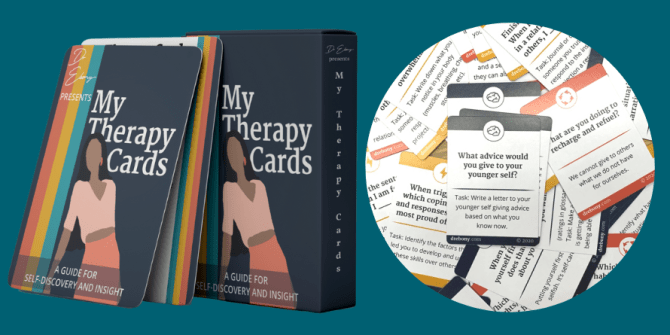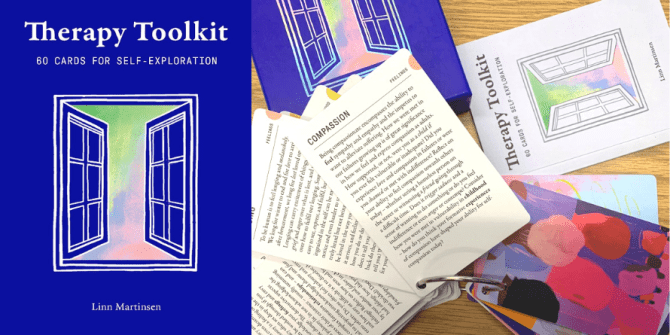By Sophie Leveque, Health & Human Services Specialist at the BPL
Mental health affects how we think, feel, and act. It also helps determine how we handle stress, relate to others, and make choices. Mental health is important at every stage of life, from childhood to adulthood. We all have good days and bad days. At the Library, we want to offer resources for all days.
Therapy Cards are a new addition to our collection for mental health; a crucial way of exploring mental health topics is with self-exploration. You know yourself best. We have two types of therapy card decks, and we hope you will try using both. You can put a hold on these at your preferred BPL location and use them for 3 weeks just like a book. Read our Therapy Card FAQs in this blog post.
My Therapy Cards follows Dr. Ebony's framework for sustainable change. There are three obstacles that the cards tackle: Mental Blocks, Habits, and Trigger Responses. There are three types of decks: Classic for everyone, For Teens, and For Men. Dr. Ebony created special decks for teens and for men because these groups of people are less likely to access mental health services.
Therapy Toolkit is split into four categories: experiences, emotions, relationships, and childhood. The cards are designed for self-exploration and have beautiful art on one side that will inspire reflection.
Things to do with Therapy Cards:
- Make healthier habits
- Examine your patterns
- Learn about your triggers
- Learn about all the feelings (not just sad, happy, mad!)
- Learn how to self-regulate when you feel agitated
- Learn how our feelings and mood are connected
- Learn how personal history impacts decision-making
- Conversation starters with family or friends
- Use in a session with a therapist to guide the conversation
These decks were created to make therapeutic concepts more accessible; not everyone can access therapy or can access it regularly. These cards are not a replacement for talking to a mental health clinician. But not everyone can afford to talk to a mental health clinician (a therapist or social worker) or can afford to go weekly. Not everyone can find someone in their insurance network who they connect with. There are many reasons therapy isn’t accessible. With these therapy cards, we hope to bridge the gap just a little bit.
We have many books in our collection if you want to read more about therapy or mental health. Below is one booklist to start with. Visit our Mental Health page and Health & Wellness page to explore more resources.




Add a comment to: Therapy Cards at Boston Public Library